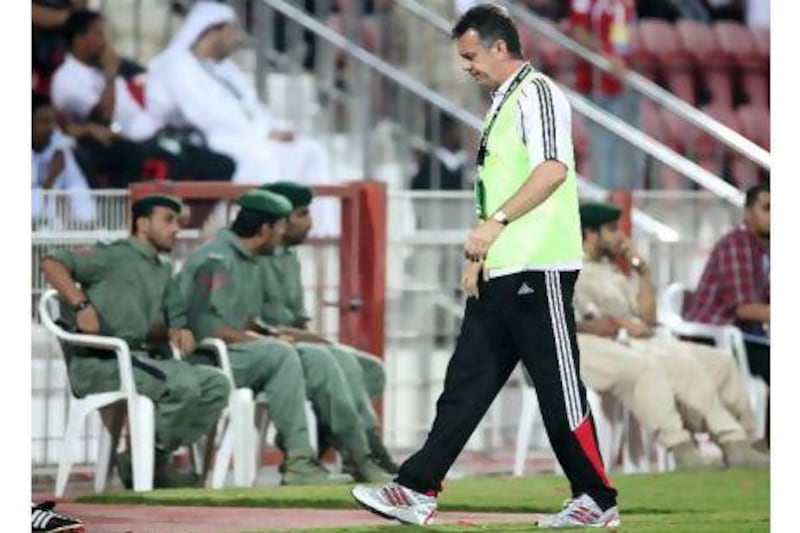Sir Alex Ferguson took over at Manchester United in 1986 and the club finished 11th in his first season. The Scot had to wait six years for his first league title.
Now imagine he had managed one of the Pro League clubs in the UAE and finished, say, eighth in his first season. What would have been the chances of him keeping his job?
In the irascible world of UAE club football, a fast-food culture prevails.
______________
More
• Coaching carousel by Pro League football clubs is not amusing
• Al Jazira prove that continuity breeds success
• 5 good and bad moves in UAE football history
_______________
It has become a trend to hire and fire coaches, with club managements holding unreasonable demands. They want men who can work wonders, shamans who will cure the ills through some mystical pill.
A coach is not allowed to “overtrain” the players, as two of them discovered this season, yet they are still expected to produce results.
In Europe, clubs often play three games a week and, in Manchester City’s case, sometimes train twice a day.
Demands made by players are to the detriment of football and the clubs’ performance in the Asian Champions League is a manifestation of this.
Professionalism needs to be more fully embraced, as Henk ten Cate so caustically pointed out after quitting as Al Ahli in March last year.
“I tried my best since I started to create a more professional environment by training more often, by training harder, by demanding professionalism from all players,” said the Dutchman, who was Frank Rijkaard’s assistant at Barcelona when they won the Spanish Primera Liga and Champions League double in 2006. “If I had the feeling that I could change things, I would have fought until the bitter end.”
David O’Leary, the deposed Al Ahli manager, learnt fairly quickly that admonishing players in a bid to change habits was futile. Like ten Cate and O’Leary, many top coaches have come to the country only to leave soon afterwards.
Perhaps, the clubs could have made a greater effort to keep them, instead of looking for men who will indulge the players and the fans.
Recycling the same journeymen managers will not help move the game forward. The clubs have tried that without much success.
They need to get the best available coaches – local or foreign, little-known or a big name – and then back them to the hilt. A coach should be in sole charge of the team and given ample time and support to establish his philosophy.
The Al Jazira management have done that, keeping faith in Abel Braga, and the Brazilian has now delivered, building a team that will not fade in the coming seasons like other defending champions.
There is a lesson for the others here, a template worthy of emulation if they could look beyond myopic gains.
The Football Association has shown the way through its persistence with Srecko Katanec, despite patchy form.
Consistency is a must at the clubs for the larger good of football in the country.
Success will not come overnight, or across the counter in a Big Mac packaging. There can be no instant gratification.
If UAE football wants to follow the path envisioned by their chiefs and gain credibility, the club bosses will have to play their part as well.
At the moment though, they seem to lack stability and continuity and without that they will never find their way around the maze of professional football.
arizvi@thenational.ae






